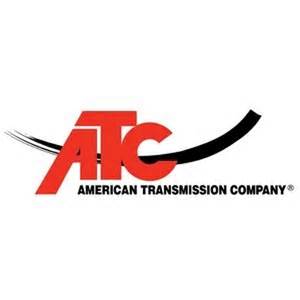The Bay-Lake RPC announced available funding under the 2019 WI RPCs & DNR Great Lakes Basin Tree Planting grant program. This program is a partnership between Bay-Lake RPC, Wisconsin DNR, East Central Wisconsin RPC, Northwest Wisconsin RPC, and Southeastern Wisconsin RPC. Continue reading “Funding available to plant trees!”
Financial help
Bay-Lake RPC announces the award of 18 tree planting grants
Four Wisconsin regional planning commissions (RPC), Bay-Lake RPC, East Central Wisconsin RPC, Northwest Wisconsin RPC, and Southeastern Wisconsin RPC, and the Wisconsin Department of Natural Resources (DNR) have jointly awarded a total $122,200 to communities under their 2018 Wisconsin RPCs and DNR Great Lakes Basin Tree Planting Grant Program. The DNR marketed the grant opportunity, provided process guidance and assistance ranking the grants. Eighteen Wisconsin communities will receive funds for projects to reduce runoff and mitigate the impacts of Emerald Ash Borer (EAB). Continue reading “Bay-Lake RPC announces the award of 18 tree planting grants”
New funding opportunity with American Transmission Company
 American Transmission Co (ATC) has new program that provide funding for the purchase of seeds, plugs or plants that are low-growing perennials that can be planted within a transmission line right-of-way. This program in conjunctions with the ATC’s existing Community Planting Program will help create greener communities. Learn more about both programs through the press release from ATC.
American Transmission Co (ATC) has new program that provide funding for the purchase of seeds, plugs or plants that are low-growing perennials that can be planted within a transmission line right-of-way. This program in conjunctions with the ATC’s existing Community Planting Program will help create greener communities. Learn more about both programs through the press release from ATC.
Continue reading “New funding opportunity with American Transmission Company”
Urban Forestry Grants application and guidance open for review
By Alex Elias, Urban Forestry Grants Manager
Updated guidance for the Urban Forestry Grants program has been posted for public input and will be available for a 21-day comment period. Guidance is available for both internal and external review from Tuesday, May 15, 2018 through Monday, June 4, 2018 on the proposed program guidance open for public comment website. Continue reading “Urban Forestry Grants application and guidance open for review”
Urban Forestry awards second round of grants
The DNR Urban Forestry Grant program awarded $64,641.14 to four Wisconsin communities for urban forestry projects, during our 2018 second round funding. In order to ensure a pool of catastrophic storm funds throughout the year, we have switched to awarding grants in two rounds instead of awarding all of our funds in December. The communities who received grants in the spring include Beaver Dam, Grafton, North Central Wisconsin Master Gardeners Association, and Slinger. Continue reading “Urban Forestry awards second round of grants”
Great Lakes Restoration Initiative funding available
The U.S. Forest Service anticipates approximately $3.7 million in Great Lakes Restoration Initiative funding will be available for tree planting and restoring native vegetation in the Great Lakes Basin. Continue reading “Great Lakes Restoration Initiative funding available”
Community grant to utilize their ash
The Madison Community Foundation announced in February a $75,000 grant intended to help local community organizations utilize wood from ash trees that were felled due to emerald ash borer for education and artistic projects. Continue reading “Community grant to utilize their ash”
Building a Community Ecology Project
Contents of this article are shared for informational purposes only. The Wisconsin Department of Natural Resources does not endorse and makes no representations, expressed, inferred or implied, concerning these organizations, programs or services.
By Paul Fliss, City Forester, City of New Berlin, WI
The City of New Berlin applied for a National Fish and Wildlife Federation (NFWF) Five Star and Urban Waters Restoration Grant in 2017. The proposed project will cover 9.59 acres and encompass the length of Deer Creek and the wetlands to the south and east of the City Center Business District. Common to this area are several species of resident birds, migratory songbirds, owls and waterfowl. Recent history has revealed an abundance of whitetail deer and smaller animals such as muskrats, raccoon, opossum, skunks, various mice/voles and even evidence of a beaver. The habitat for these species is that of an urban to rural interface and wetland transition ecology. The current state of the defined proposal areas vary between ‘poor’ with construction debris, litter and heavily infested invasive species to ‘fair’ with few invasive species and nearly undisturbed lowland habitat, native trees and wetlands plants. Continue reading “Building a Community Ecology Project”
2018 Urban Forestry Grant recipients
By Alex Elias, Urban Forestry Grants Manager
Thirty communities, nonprofit groups and counties will share $465,661.99 in 2018 state grants from the Department of Natural Resources Urban Forestry Grant program to promote and sustain urban forest resources in Wisconsin.
Urban Forestry grant reminder
A reminder that the application deadline is coming up for 2018 Urban Forestry Grants! Continue reading “Urban Forestry grant reminder”
